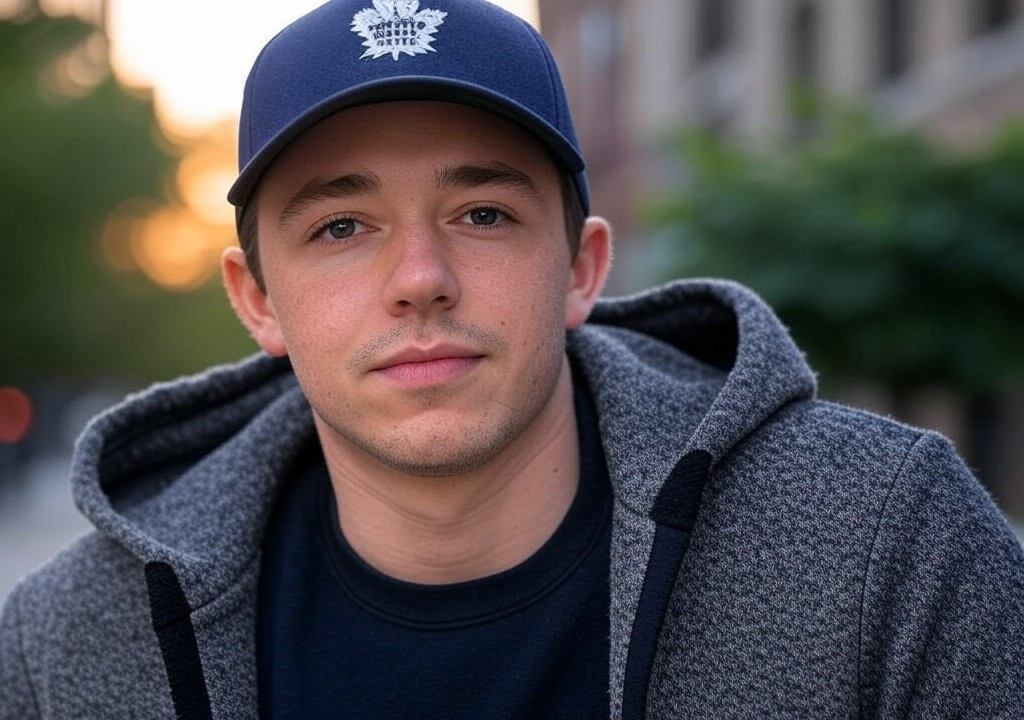There’s a scene in Shrek where Donkey, in his infinite wisdom, turns to a grumpy ogre and says, “You are something special.” Now, Shrek doesn’t believe him (he’s Shrek, after all—layers and all that), but it’s one of those moments that sticks out. Because, sometimes, all it takes is for someone to see you—to truly see you—and remind you that you’re capable of more than you think. My “Donkey” moment came during a rainy fall afternoon in Toronto, thanks to an unlikely teacher who completely altered the way I saw myself—and, eventually, the way I approached my relationships.
Let me set the scene: I was 16, a social chameleon awkwardly glued to the walls of Riverdale’s bustling high school cafeteria. I wasn’t the kid raising their hand to dominate debates in history class or confidently sitting on the art department steps; I floated somewhere in between, dipping my toes into everything but feeling like I had no claim to any of it. Then, one day, Ms. Richardson, our English teacher, handed back my essay with a note scrawled in red: “You’re a writer. You should know that.”
It hit me harder than I expected—for one thing, nobody really tells angsty teenagers they’re good at anything specific (except maybe rolling their eyes). For another, I’d always thought my essays were just passable; the literary equivalent of margarine. Functional, sure, but hardly inspiring. Ms. Richardson didn’t just grade my paper that day—she saw potential in me that I had never dared to acknowledge. It was my first real lesson in self-worth, one that would echo into my friendships, my romantic relationships, and, yes, even my dating life.
The Power of Being Seen
Here’s the thing about being seen: it unlocks something in you. Like stepping into sunlight after a long winter, it can be disarming but exhilarating. Ms. Richardson’s belief in me wasn’t just about writing—it was a metaphor for what we all long for: to be noticed, not for the things we show the world, but for who we really are.
When I think about relationships—platonic or romantic—this is where it always starts. The foundation of any great connection isn’t just chemistry or shared interests (though, shoutout to finding someone who also loves niche Canadian indie bands); it’s about feeling understood. And yet, how many of us are walking around, still hiding our true selves behind essays we think aren’t “good enough”? Spoiler alert: way more than you think.
What Being Seen Taught Me About Relationships
Ms. Richardson’s red-ink revelation became a lens through which I started viewing my connections with people. Sure, being told I was “a writer” didn’t immediately catapult me to bestselling stardom (spoiler: teenage me still bombed my calculus test that week), but it gave me the confidence to be more authentic. That spilled over in ways I didn’t expect.
1. Showing Up as Yourself Is Non-Negotiable
In my early twenties, I went through a phase where I tried to be what I thought other people wanted. I was the indie music guy, the film-snob guy, the “Yeah, I definitely love cilantro” guy—even though cilantro, to me, tastes like soap. Needless to say, none of those personas worked out long-term. People can sense when you’re hiding who you are, even if they can’t always articulate it—and it creates a weird, unspoken wall in connections. Ms. Richardson knew I was a writer before I did, and quietly nudged me to lean into it. The best relationships, I’ve learned, do the same: they don’t dim your light; they amplify it.
2. Real Validation Comes When You’re Not Expecting It
Validation from someone who doesn’t owe it to you hits differently. We spend so much time chasing external approval—likes, compliments, the occasional swipe-right acknowledgment—that we forget how freeing it feels when someone notices us organically. That rainy afternoon in Toronto, Ms. Richardson’s words felt like they came out of nowhere, but they showed me the value of “unprompted applause.” Want a tip? Be like her in your relationships: celebrate the people around you for the things they don’t even see in themselves. It matters.
3. People Remember How You Make Them Feel
Ms. Richardson probably doesn’t remember writing that note—she might’ve been halfway through a bag of ketchup chips (weirdly Canadian, I know) while speed-grading essays. But I remembered. Just a few words set me on a path of discovery that eventually helped shape everything from my career to how I treat others. It’s the same in relationships: big, grand gestures are great, but it’s often the tiniest moments of acknowledgment that leave the deepest marks. Did you catch your partner’s subtle hint that hugs recharge them after a tough day? Lean into that. Did you tell your best friend you love their slightly ridiculous but earnest karaoke obsession? You should.
Turning Visibility Into Connection
Of course, just being “seen” isn’t the endgame; it’s the baseline. Once you start valuing and owning your potential, something wild starts to happen: you attract connections that align with who you truly are. Call it cosmic karma, call it “The Secret,” call it whatever—the point is, authenticity attracts authenticity. Ms. Richardson lit a spark in me, but it was up to me to fan that flame. And trust me, it wasn’t easy.
When I started writing seriously, I dealt with what I like to call “impostor syndrome on steroids.” (Yes, it’s as dramatic as it sounds.) But every time I genuinely put myself out there—whether in my work, relationships, or a disastrously candid first date—I found a little more ease in the process. The feedback loop was undeniable: the more I embraced my quirks (hello, Tragically Hip lyrics on corkboard walls), the more people connected with me on a deeper level.
Does this mean every interaction was perfect? Absolutely not. There were still awkward silences, relationship missteps, and truly baffling moments (ask me about the time someone used a Drake lyric as a breakup line). But the difference was that these connections felt real and, ultimately, meaningful.
The Takeaway: Who Can You See?
The fun part about this whole “being seen” thing is that it works both ways. Once you’ve experienced what it feels like to have someone notice your hidden potential, you start looking for ways to return the favor. Now, I’m not saying you need to go around writing inspirational notes on your friends’ coffee cups—unless that’s your vibe, in which case, go forth and caffeinate. But I am saying that you can actively choose to see people in the way Ms. Richardson did for me: with intention, curiosity, and zero expectation of anything in return. Spoiler alert: that’s the stuff that makes relationships (romantic or otherwise) go from pedestrian to profound.
So, who’s your Ms. Richardson? Or, better yet, who could you be a Ms. Richardson for? Text your friend about that talent they’ve been underselling. Compliment your partner not just on how they look, but on how their mind works. Tell that colleague they’ve got leadership potential. These might sound like small things, but they ripple outward.
Because here’s the truth: being seen can be life-changing. And if you’re lucky, you might even get to write about it one day. In red ink, on wide-ruled paper, and with confidence.




















